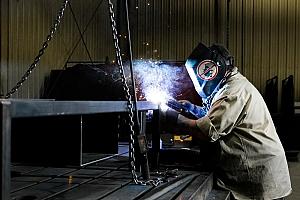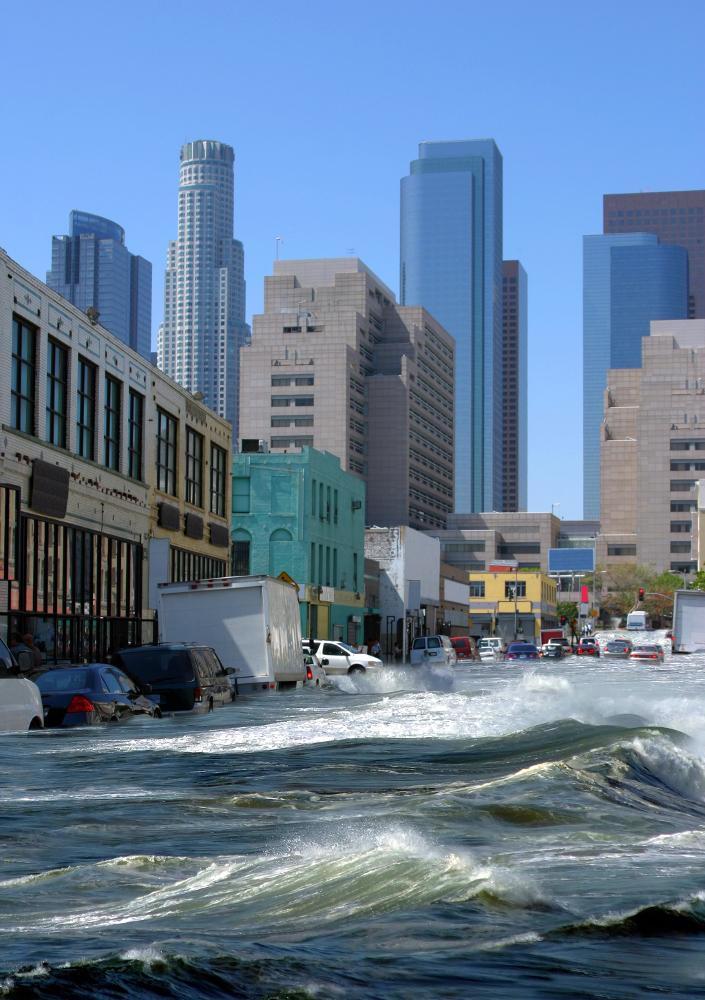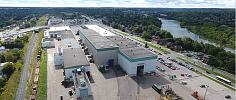- FMA
- The Fabricator
- FABTECH
- Canadian Metalworking
Categories
- Additive Manufacturing
- Aluminum Welding
- Arc Welding
- Assembly and Joining
- Automation and Robotics
- Bending and Forming
- Consumables
- Cutting and Weld Prep
- Electric Vehicles
- En Español
- Finishing
- Hydroforming
- Laser Cutting
- Laser Welding
- Machining
- Manufacturing Software
- Materials Handling
- Metals/Materials
- Oxyfuel Cutting
- Plasma Cutting
- Power Tools
- Punching and Other Holemaking
- Roll Forming
- Safety
- Sawing
- Shearing
- Shop Management
- Testing and Measuring
- Tube and Pipe Fabrication
- Tube and Pipe Production
- Waterjet Cutting
Industry Directory
Webcasts
Podcasts
FAB 40
Advertise
Subscribe
Account Login
Search
Would your shop survive a natural disaster?
- By Vicki Bell
- August 31, 2016
Do you know anyone personally affected by the flooding in Louisiana? What about the wildfires throughout the Southwest, or the earthquakes in Italy? These and other natural disasters have occurred in recent months, and hurricane season is upon us.
I have a friend in Louisiana who was affected, but her situation certainly was not as bad as some. Water rose near her yard, but the house was spared. Her daughter was instructed by her employer to come to work, which involved traveling over flooded roads. She had to spend at least one night at work because she was unable to get home on these roads.
Relief efforts are underway, and it will be sometime before the area dries out and is “livable” for many.
The devastation includes small businesses that feel the brunt in terms of loss of income for owners and employees. While you can’t keep these disasters from coming, you can take steps to help prevent them from destroying your small business.
According to an article on clark.com, syndicated columnist Clark Howard’s website, after a natural disaster, such as the flooding in Louisiana, “nearly 40 percent of small companies won’t reopen, and even a few inches of flood water can cause thousands of dollars’ worth of damage. The article offered three tips for preparing your business for a natural disaster:
- Back up your data. Should a power outage occur, you could lose important files and documents. “Despite these risks, most small businesses don't have a proper disaster recovery plan in place. The Contingency Planning and Strategic Research Corporation found that 96 percent of business workstations are not regularly backed up. Data backup will provide your business with a safeguard if a devastating natural event occurs.”
The article recommended that if you invest in a physical backup site, choose a location that's far from your business so it won't be impacted by the same disaster. You also can back up your data in the cloud, which will enable you to access files quickly from another site.
- Review your insurance policies. The article stated that one in three small business owners have felt the impact of storms or extreme weather and lost an average of $3,000 a day because of being closed following a natural disaster.
” Having an insurance policy that won't cover the cost of repairs and cleanup can make a crisis even worse. When small business owners search for a policy, most settle with property insurance that covers damage to buildings and expensive equipment. Sometimes this isn't enough. Business interruption cover, which can be bolted on to most property insurance plans, compensates a drop in income as a result of an emergency, providing you with a steady income stream as you deal with the fallout of a disaster.”
- Apply for emergency financing. Having credit is the best safeguard. The article noted that many business owners make the mistake of applying for credit after a disaster, and often have to wait several weeks to receive any cash. However, securing an emergency source of small business financing, such as a line of credit or business credit card, as a preventive measure can provide you with the peace of mind you need if a disaster strikes your business in the future.
Good preparation also involves having an emergency preparedness program to protect lives. Several articles on thefabricator.com have addressed this topic. Among them are “Emergency preparedness: A critical safety program component” and “Is your company prepared for the worst.”
Preparation is key. Make it a priority.
subscribe now

The Fabricator is North America's leading magazine for the metal forming and fabricating industry. The magazine delivers the news, technical articles, and case histories that enable fabricators to do their jobs more efficiently. The Fabricator has served the industry since 1970.
start your free subscriptionAbout the Author

Vicki Bell
2135 Point Blvd
Elgin, IL 60123
815-227-8209
- Stay connected from anywhere

Easily access valuable industry resources now with full access to the digital edition of The Fabricator.

Easily access valuable industry resources now with full access to the digital edition of The Welder.

Easily access valuable industry resources now with full access to the digital edition of The Tube and Pipe Journal.
- Podcasting
- Podcast:
- The Fabricator Podcast
- Published:
- 04/30/2024
- Running Time:
- 53:00
Seth Feldman of Iowa-based Wertzbaugher Services joins The Fabricator Podcast to offer his take as a Gen Zer...
- Industry Events
Pipe and Tube Conference
- May 21 - 22, 2024
- Omaha, NE
World-Class Roll Forming Workshop
- June 5 - 6, 2024
- Louisville, KY
Advanced Laser Application Workshop
- June 25 - 27, 2024
- Novi, MI
Precision Press Brake Certificate Course
- July 31 - August 1, 2024
- Elgin,
































